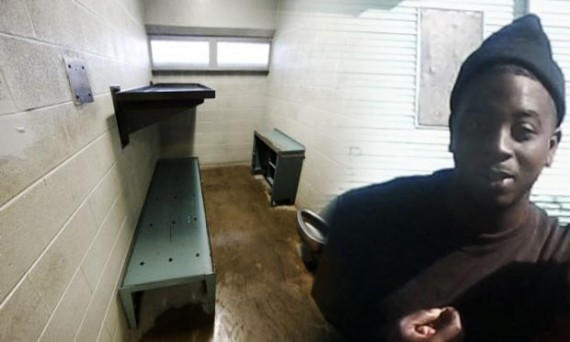
Jamycheal Mitchell died in a Portsmouth jail in August after waiting several months to be sent to a state mental hospital for evaluation.
States continue to close their mental hospitals in favor of community treatment. The argument is always that hospitals are too costly and services can be better rendered in a less restrictive community setting. But history shows us that the savings from shutting hospitals rarely are passed through to community treatment and there are some who question if everyone with a severe mental illness can live independently in a community setting.
Because of neglect and age, Virginia wants to close two hospitals rather than repair them. Here are my thoughts, which I expressed in an Op Ed published 12-27-15 in The Washington Post.
Virginia’s Mental Health Merry-Go-Round
By Pete Earley The Washington Post 12-27-15
Four months after a mentally ill man died in jail while waiting for a state hospital bed to become available, Virginia Gov. Terry McAuliffe (D) wants to close one state hospital and is laying the groundwork to mothball a second one.
Jamycheal Mitchell died in a Portsmouth jail in August after waiting several months to be sent to a state mental hospital for evaluation. The 24-year-old, who had schizophrenia, was charged with stealing $5.05 worth of snack foods from a convenience store. In jail, he refused to eat, became sicker without treatment, shed 36 pounds and died.
There are more than 85 prisoners with mental illnesses in Virginia jails waiting for state hospital beds. The average wait is 73 days. If state legislators approve a plan being pushed by the Virginia Department of Behavioral Health and Developmental Services and being backed by the governor, the state will lose 233 of those much-needed beds.
In his budget, McAuliffe called for closing the Catawba Hospital in Roanoke County within two years. State officials also want to shutter the Piedmont Geriatric Hospital in Burkeville in the next budget round. Both hospitals are old, and a November study estimated it would cost $94.1 million to repairthem. To help ease the bed loss, the governor has proposed building a 56-bed wing at Western State Hospital in Staunton at a cost of $22.3 million. That would reduce the actual number of lost beds from 223 to 177.
In defending the closures, officials said Virginia averages 17.3 state hospital beds per 100,000 residents. That’s “considerably higher” than the 12.4 beds per 100,000 found in many states, the November study noted. But those statistics ignore an independent study by the Virginia-based Treatment Advocacy Center that called anything under 50 beds per 100,000 residents inadequate.
Virginia’s nine state mental hospitals currently serve more than 5,000 patients. According to state figures, 15 percent of those patients are “clinically ready for discharge” but have no appropriate place to go. Some 150 patients have been waiting for more than a month to be discharged ; others longer. Geriatric patients with serious mental disorders, such as those housed at Piedmont, are among the most difficult to place in communities, especially in rural areas near their families.If the legislature moves forward with the plan, all savings from closing the hospitals should be shifted to funding community-based mental-health programs with a portion targeted for the care of state hospital patients ready for discharge. This would free up a minimum of 150 beds for others waiting in line. With the addition of the 56 beds at Staunton, discharging those difficult-to-place patients would virtually neutralize the overall loss of beds after both hospitals are closed.
Those of us with mentally ill family members — my adult son has a mental illness — who have been hospitalized, however, are skeptical. Virginia has a shameful history of closing state hospitals to save money and then spending those savings on programs other than mental health. The result has been long waits to get community-based help, unnecessary suffering, increased homelessness and jails and prisons becoming asylums. What assurances do we have that McAuliffe and state mental-health officials are not putting us on that same merry-go-round this time?
The writer is a mental-health advocate.



